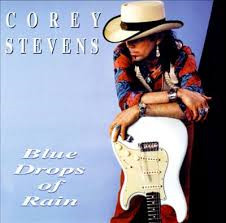 | I’ll Play the Blues for YouCorey Stevens |
Writer(s): Jerry Beach (see lyrics here) Released: April 22, 1995 (album) First Charted: -- Peak: 1 DF (Click for codes to singles charts.) Sales (in millions): -- Airplay/Streaming (in millions): -- radio, 0.08 video, 0.21 streaming |
Awards:Click on award for more details. |
About the Song:With just five albums in seven years, singer and guitarist Stevie Ray Vaughan established himself as one of the most important artists in blues history. As a white artist, he opened a door for audiences to what had traditionally been a black music genre. His life was tragically cut short in a helicopter accident in 1990 when he was just 35. While no one could take his place there were several artists in the ‘90s who gave it their best shot. Kenny Wayne Shepherd, Jonny Lang, and Corey Stevens all found some airplay on album rock stations, but none reached the same level of success as Vaughan. Stevens’ aim at the throne was the most obvious. The two were both born in 1954, just two months apart. On Stevens’ debut album, Blue Drops of Rain, he even looked like Stevie Ray, complete with a soul patch and large-brimmed hat. The lead track, “Gone Too Long,” sounded like Vaughan and Stevens even covered “Lenny,” a song written by Vaughan. However, Stevens also displayed an affinity for Albert King, covering “Crosscut Saw,” a song which King took to #34 on the R&B chart in 1967. Stevens also did “I’ll Play the Blues for You,” a song from King’s 1972 album of the same name. It reached #31 on the R&B chart. The song was written by Jerry Beach, who released it as a single just a couple of months before King’s version. SH However, it was first recorded in 1969 was by a Texas-born soul singer named Geater Davis. That version was unreleased. SH Others who’ve recorded the song include Gary Moore and Joe Bonamassa. SH While King’s version has a slow groove, Stevens gave the song a more driving rock beat which gives it such a slinky, sultry sound it’s a wonder it hasn’t become a go-to song for strippers.
Resources:
First posted 12/23/2022. |









